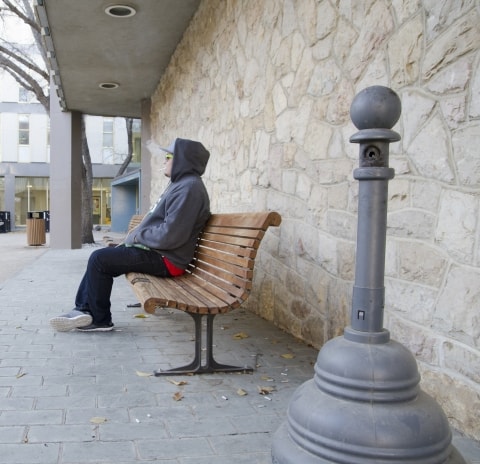Smoking is the number one most preventable cause of premature death in Canada, but cigarettes are just one addiction that is symptomatic of an increasingly stressed student body.

Students won’t stop smoking just because they can’t on campus.
In a 2016 survey, the University of Saskatchewan found that less than one in 10 of its students regularly uses cigarettes, cannabis or hookah. Though it’s common knowledge that smoking has horrendous implications for our health, students across Canada continue to do it.
McMaster University just announced plans to go smoke-free in 2018, becoming at least the 14th Canadian campus to ban smoking in an effort to save the lungs of students.
However, smoke-free campuses are not conducive to kicking a nicotine addiction — smokers will continue to smoke, just in a different location.
Rather than focusing on the act of smoking itself, universities should consider the motive. I am someone who smokes occasionally. I do it during exam periods, usually because I’m a mess, who has left all her papers until the last minute. I do it to de-stress — unhealthy habits like smoking are a logical response to campus life, which is a huge source of stress for many.
If universities want to implement smoke-free campuses because smoking is bad for you, they had better close university bars, ban Coca-Cola and demolish Tim Hortons, because I’m pretty certain that alcohol, sugar and caffeine addictions are also unhealthy.
Campus life is inherently stressful, and unhealthy habits are a coping mechanism for this stress. I engage in many habits at university that will probably shorten my life — including binge drinking, smoking and drinking coffee — and I spend a lot of my time horizontally, eating junk food and watching Netflix. I don’t feel like I should be banned from doing these things, given that university life is fundamentally defined by independence and personal choice.
The U of S should not feel obliged to decorate the campus with “smoking kills” posters or to ban students from smoking completely. Rather, they should try to de-stress students as much as possible, providing alternatives to a swift dart between classes.
For instance, there are services like PAWS Your Stress, which brings therapy dogs to different spots on campus, as a lovely and fluffy alternative to cigarettes. I’m not saying that a dog can cure addiction, but events like this are a nice break from the classroom.
Of course, the university should offer maximum assistance to those who want to quit their addictions, but it shouldn’t forcefully impose restrictions on students’ personal choices by banning smoking entirely.
If you are struggling with addiction, the Student Wellness Centre offers urgent and non-urgent physical and mental health care to U of S students. Contact student.wellness@usask.ca for details.
—
Marianne Holt
Photo: Shirley Charles